Austin Findley is from the Midwest. Born on August 13th, 1997 to a family from the country, He was raised in small towns around Mid-Missouri. He started learning music theory at age 14, when he began playing with a program called LMMS. He says that his unique style is a result of listening to hours of music. He grew to love The Stone Roses, for their dance-able rhythm, trippy vocals, and psychedelic guitar sounds. David Bowie taught Austin the art of singing and changing with the seasons. Lou Reed & The Velvet Underground influenced his views on poetry, music, and art. Iggy Pop, Van Morrison, The Rolling Stones, & Led Zeppelin also added some depth to his music. But that was only the start, as he has since added a wealth of musical talent to his influences; going from jazz musicians to classical music, as well as rap artists such as Eminem, Nas, Kendrick Lamar and Madvillan. Check out Austin’s website, for more information and a list of his music, books and merchandise.

- When and how did you get started making music? And are you self-taught or did you have any formal training?
Austin Findley: I started making music in 2012. I was fourteen at the time and going to school at Lewis and Clark. In my free time, I would play on my computer; making simple melodies on the keyboard. When I decided that I would be a musician that was when I started making music. Seven years later, and I’m still a musician.
- Who were your first and strongest musical influences that you can remember?
Austin Findley: Eminem and Fall Out Boy. My current musical taste is a lot different than it was then. I went through a phase where I would listen to hours of music a day. I used a database called: besteveralbums.com. They rate albums based on a mathematical formula; not opinions.
- For most artists, originality is first preceded by a phase of learning and, often, emulating others. What was this like for you? How would you describe your own development as an artist and music maker, and the transition towards your own style?
Austin Findley: That’s true. I learned by doing and emulating the artists around me. My sound and genre changed within a span of three years. Before I was Austin Findley the Songwriter, I was Knackmintosh the Rapper. I felt that rapping and singing would contradict each other, so I began to rap less and sing more. Since Jazz and Classical numbers rarely feature vocals, I rarely sing. I still sing baritone. As I would listen to highly rated music, my style would change. The musical qualities are set in stone now. If a horde of masterpieces could grace my presence, I may change with the times. Right now, it’s mostly Hip-hop and Dream Pop.
- What do you feel are the key elements in your music that should resonate with listeners?
Austin Findley: Introspection. There are aspects of my music that people like and dislike. Since my art is done at home, there are imperfections. Those imperfections can be discussed and debated. Top 40 Radio never has quirks like the ones listed above; it’s produced with thousand dollar budgets.
- What do you think mainly separates you from the massive crowd of artists emerging right now on platforms all over the web?
Austin Findley: Nothing. We are all trying to become bigger fish than we are. Since the public could only remember a small group of musicians, some artists are left undiscovered. 90% of musicians worldwide are unknown to the masses. It’s common knowledge that successful musicians aren’t more talented than unsuccessful musicians; they’re just paid more. In order for musicians to become more successful, they’d have to gain skills in marketing, branding, and advertising. Those aren’t skills associated with the craft. Since artists don’t tend to think like business people, it fails. Which is why delegation could help artists more than it hinders. A team of marketers, promoters, tutors, and session musicians would make anyone successful. They’d still have to work; but not as hard. Managers could help with business opportunities too.
- What is your process when composing, recording and producing your music? Do you outsource any of these tasks?
Austin Findley: I currently do cover songs with some originals. Recording and producing is currently done at home; on my computer. If I were to record music the traditional way, I’d need thousands of dollars for recording, producing, and mastering my albums. After those costs are weighed, most of the budget would go towards marketing and branding. The amount of people working on an album would increase more than tenfold. The great thing about computers is it automates jobs that used to take longer to complete. For music, that helps tremendously. Unfortunately, that also makes it easier to dilute the market with shoddy products. Another reason why music today is almost never amazing. If you’re lucky, you might get two great albums a year. I’m outsourcing the marketing right now. If the marketing is able to reap profits, I’ll consider distributing the capital gains into a mix of marketing and improving products.
- How strict are you with genres and styles? Do you stick to a specific genre and style or do you tend to also explore diversities?
Austin Findley: I tend to focus on Classical and Jazz traditions when it comes to composition. Nobuo Utematsu’s style of music is a huge inspiration. After you factor in the indie rock influences, you get a unique blend of experimental. I tend to stick to a blend of styles to create a fusion genre.
- What key ingredients do you always try and infuse into your music, regardless of style or genre?
Austin Findley: Complexity. It’s a thing that’s polarizing in the musical community. Simple songs can be great for ballads, but bad for instrumentals. Since John Coltrane is an influence of mine, my music reflects that. Introspection. I want my fans to dissect my music and discuss the nooks and crannies. There may be aspects they like or dislike. If there are things they don’t like, I’ll listen and alter my sound; customer service is important. If I hear quirks in the sound, I’ll leave the song with them, because it causes people to think about the song more. Abstract. Since my thoughts on musical theory is focused on different keys for parts of the song, the music tends to focus on a melody; which gets filled with chords and arpeggios. I layer those sounds together and loop those sounds to minutes. If I’m unsatisfied with the result, I’ll shelf the project and return to it after work.

- What has been the most difficult thing you’ve had to endure in your endeavors so far?
Austin Findley: Financial obligations. Music is not my main breadwinner; clerical work is. That is how all of this is possible. The proceeds from my day job go towards the business I’m investing in. I always remind myself that the company I work for indirectly made those things possible by giving me the funds to do so. Without those resources, my albums wouldn’t be on Spotify, they’d be on Bandcamp and YouTube. Not the best place to be for a musician. In order to distribute music, you must pay tribute to a distributor. I have paid those dues and got distribution as a result. If I were to release albums free of charge, the distribution would be limited.
- What would you consider a successful, proud or significant point in your career so far?
Austin Findley: Every album release is a success for me. I made a goal on releasing an album, and I released it. I consider that a notable achievement.
- What were some of the main challenges you encountered when starting out making music and how have they changed over time?
Austin Findley: Juggling work and dream work together. There are times they clash. Employers tend to dislike people with hobbies and goals besides burger flipper or floor sweeper. To make more time for my craft, I’ll sometimes bring my projects to work to complete them during work hours. Since workplaces look down on people trying to improve their station, they put clauses in contracts that state they can’t do business and work at the same time. That’s limiting for many people.
- What was your first hardware/software set-up like? And how has it evolved since then. What for you is currently the most important piece of hardware/software in your production process?
Austin Findley: I used a laptop and a built-in speaker. My audio tools have expanded into a microphone, desktop, and Midi input for microphone. The music is created on LMMS: Linux Multimedia Studio. It’s a DAW that allows the user to make music. Audacity is used to record vocals. Aria Maestosa, Anvil, and MuseScore are used for composition.
- Which aspects of being an independent music maker excites you most and which aspects discourages you most?
Austin Findley: Autonomy. I love the feeling of being able to work without someone forcing you to. I wouldn’t trade it in the world. It has its drawbacks. Even when you don’t want to work on music, you must. It’s in the job title after all. Almost every musician has a day job to fund the hobby. They tend to spend less time than is required for financial reasons. Starting a career in the music industry requires a set of skills most musicians don’t have. It also requires sacrifices in time and relationship quality. Music can be a rewarding path for some who face uncertain outlooks on jobs. When people have little-to-no access to quality employment, they tend to create their own. This job creation rarely creates enough wealth to live off of.
- Are you satisfied about the way the music business works in today’s digital age with platforms like Apple, Spotify, Beatport and Soundcloud, or do you have a different vision of the business?
Austin Findley: There are problems with the current business model of streaming and live performances. For streaming to make a difference, you’d have to stream a million plays in order to make $4,000. That’s below the poverty line! That only factors in Spotify; that does not take the others into consideration. From the point listed above, a musician would need a huge following in order to make a decent living off music alone. The music teacher musician is real. Even if you factor in live performances, the ROI on live performances is uncertain. Google the profit margins and it’ll almost always be negative for unknown acts. For legacy bands like Rolling Stones and Metallica, concerts are amazing. For the average musician: they could be a financial nightmare. It’s common for bands to go into debt to fund tours. They also tend to skip on meals and hotels in favor of couch surfing and van sleeping. It’s not a glamorous lifestyle for anyone. The Rockstar lifestyle doesn’t exist for most musicians; so the ego has to be left at the door and preferably kicked.

- In general, do you consider Internet and all the social media websites as fundamental in building a career in music today, and what is your personal relationship with the new technology at hand?
Austin Findley: Social media isn’t as effective as it used to be. There is way too much competition for one person to deal with. Instead of being censored from access to knowledge, the average person is censored from too much knowledge; they don’t know what to look up. So, musicians are competing against established brands that people trust. It’s the devil you know, that’s better than the devil you don’t. In order to stand out from other musicians, a musician would have to make their product ten times better than the competition, have their art be a purple cow, and have a team of professionals that focus on the business aspect of music.
- If someone has never heard your music, which keywords would you personally use to describe your overall sound and style?
Austin Findley: David Bowie. The Doors. Yasunori Mitsuta. Nobuo Utematsu. John Coltrane. Miles Davis. Charles Mingus. Fishmans. Radiohead. Velvet Underground.
- Could you tell us something about your latest release?
Austin Findley: Which one? I have two more albums slated for this year, and an album on New Years called: The Hits. The style from Neu Hälfte is similar to the ones I’m releasing months from now. The time horizon hasn’t changed the overall sound. So if you like Neu Hälfte, you’ll love Grass, Tree, and The Hits. Most of the songs on these albums are covers.
- Do you have any favorite track in one of your projects that has a specific backstory and/or message very dear to you?
Austin Findley: Scars of Time. It uses the layering I’ve referred to earlier to great effect. Jessy Dubai is about an actress. The song uses a Latin groove; which is incorporated into the music I create. Blame Os Mutantes and Chico Buarque for that.
- Do you only create and work in a studio environment, or do you also find time to perform live? And which of these two do you ultimately prefer and why?
Austin Findley: I focus on a studio environment. I plan to branch out to live performances when I get the equipment and infrastructure to do so. I’m not sure what is required to perform live but I’ve heard it requires a PA System, musicians, security guards, and booth tables with merchandise. Those things cost thousands of dollars to obtain. Security guards aren’t that much for an hour of time; so I’m not worried about that. The most expensive item on the list would be other musicians; unless I DJ on equipment. It would be cheaper that way, but how would that look on a performing angle? A guy on a computer with headphones on? That wouldn’t make a great show, would it?
- What do you find most rewarding about what you do? And do you have a specific vision or goal that you would like to achieve in 2019?
Austin Findley: As a musician, I create music. Giving the world art is the greatest reward any artist can offer. For goals in 2019, I’ve achieved all the goals for this year that I’ve wanted. The type of goals that require an accent to four million fans on Spotify are long term goals, not yearly goals. It would take many years to get that many fans at once. How many years? Depends. It would not happen overnight. The dream of being discovered by playing at a bar and becoming a mega star is unrealistic. A more reasonable goal is to aim for sustainability. In good times and bad, you’ll still be in the music industry whether you have hit records or not.
OFFICIAL LINKS: WEBSITE – FACEBOOK – TWITTER – SPOTIFY



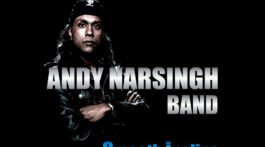
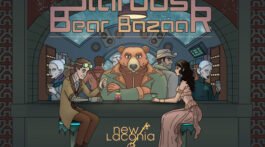
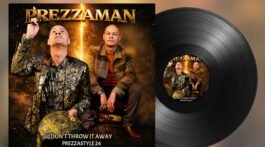
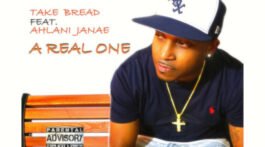
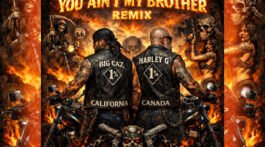

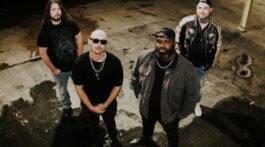

No Comment